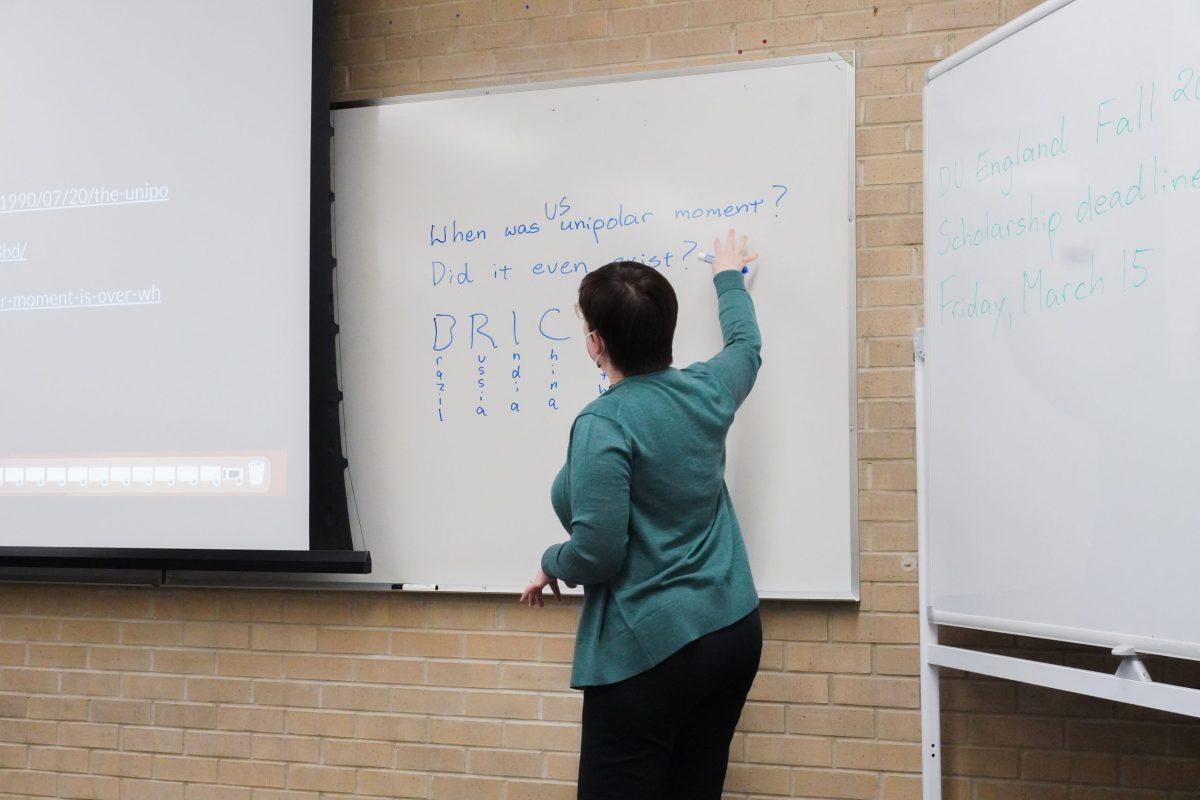Hamas’ attack against Israel on Oct. 7 and Israel’s deadly retaliation has caused world leaders to rethink how they approach the conflict, but it has also changed the environment in school settings.
Israel’s retaliation after Hamas’ attack has caused several ethical questions in classrooms about the treatment of Palestinians in the Gaza Strip. Knowing students would have questions and want to discuss the events since Oct. 7, political science professor Mary McCarthy changed her curriculum.
“It was necessary, even though we did not have a section in the syllabus on Israel and Hamas, to begin to collect information,” McCarthy said.
McCarthy teaches world politics, an introductory Areas of Inquiry class geared towards understanding the tools foreign powers use to interact with each other. This class already covers conflicts between nations, not just between Israel and Palestine. She says the hardest part of covering these wars is being respectful of the students.
“We want to understand the issues and we want to discuss [them], but we always want to do it in a way that is sensitive and respectful of the lived experiences of our students,” McCarthy said. “This has come up probably most explicitly with this conflict, Israel and Hamas, but it is true of any conflict in the world: Russia and Ukraine, and the United States and China.”
Because of the personal aspects of the conflict, as well as moral and ethical concerns, classroom debates around the events began, with professors unsure of how to keep the discussions civil and productive.
“I think, first of all, you have to set up certain parameters for discussion, making students aware of this, even if it hasn’t been verbalized by their classmates,” McCarthy said. “You have to say, ‘Okay, be aware of this set of parameters for discussion.’”
In political science professor Debra DeLaet’s classes, students expressed a wide range of interest in the topic.
“Some students are just purely curious and until Oct. 7 maybe hadn’t paid much attention at all to politics in the Middle East,” DeLaet said. “We have students of various racial, ethnic and religious backgrounds whose lives are more directly impacted by what is happening. I think some of the students who were just curious because they want to be informed citizens didn’t initially think about the fact that this was closer to some of our students’ real lives.”
DeLaet tries to present the conflict in an unbiased way that is respectful to students.
“I really try to model respectful dialogue for the students, and I think [they] are good at it, in my experience,” DeLaet said. “I’ve been really, really pleased.”
The Israel-Hamas war was used as an example in Harkin Institute Fellow Adam Shriver’s class on ethical theory last semester, but Shriver doesn’t believe the ethical theories themselves “shed much light” on the situation.
“It seems to me that most of the claims that are actively disputed in the debate are not claims that relate to which moral theory is correct, but rather claims about what historical facts are true and relevant to the conflict, as well as claims about contemporary facts,” Shriver said.
As the bombings of the Gaza Strip continue, with over 30,000 dead according to the Gaza Health Ministry, professors will continue altering their classrooms to foster productive conversations and learning environments.









